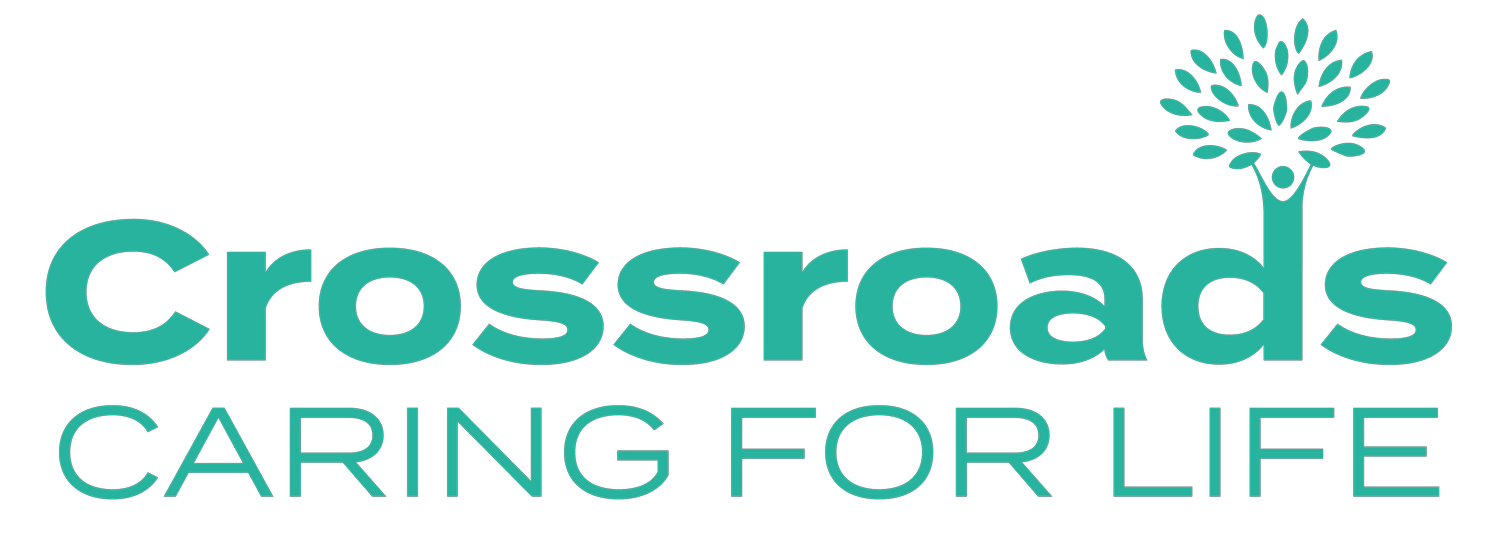Volunteer support
Take a break away from your caring role.
If you are caring for someone new to care and want a break, volunteer support could help. Many families don’t qualify for funded breaks and get no support until later. Crossroads offers help to families until they need formal community care.
Contents:
What is the definition of a carer?
What is a volunteer support?
Why are carers breaks important?
What does a break away volunteer do?
How much does a volunteer support cost?
What it means to the people we help
Frequently asked questions
Useful links & further reading
How do I arrange volunteer support?
What is the definition of a carer?
A carer is an individual who provides support and assistance to someone who requires help due to illness, disability, or age-related challenges.
This support can encompass a wide range of activities, including personal care, emotional support, companionship, and help with daily tasks such as cooking, cleaning, and managing medication. Carers can be professional but in most cases is unpaid family members or friend, and their role is crucial in ensuring the well-being and quality of life for those they look after.
What is volunteer support?
The Crossroads Breakaway volunteer service provides vital support to unpaid carers, who often experience feelings of isolation while caring at home.
Our volunteers stay with the person being cared for, allowing the carer to take a well-earned break from their caring responsibilities.
Volunteers usually visit for 1-3 hours, depending on what suits everyone best. You and the volunteer agree on the schedule, which can be weekly or less often.
We are proud to have a wonderful team of dedicated and skilled volunteers who generously give their time on a regular basis.
Many of our volunteers have either experienced being a carer themselves or have previously worked professionally and would like to still support people at home.
All our volunteers are DBS checked, receive training on safeguarding and how to best support the individual they are being connected with.
Why are carers breaks important?
Carer breaks are important as they help prevent burnout and and give carers much needed time for themselves.
A break offer opportunities for social interaction, personal pursuits, work, attending appointments… or simply relaxation, which are essential for maintaining a healthy balance in life. We feel that access to a carer breaks should be available to every carer as appreciation for the invaluable role they play.
What would you do with some time for yourself?
Sleep
〰️
Shopping
〰️
Gardening
〰️
Seeing friends
〰️
Exercise
〰️
Cinema
〰️
Coffee
〰️
Admin
〰️
Walks
〰️
Sleep 〰️ Shopping 〰️ Gardening 〰️ Seeing friends 〰️ Exercise 〰️ Cinema 〰️ Coffee 〰️ Admin 〰️ Walks 〰️

Need a break?
Book a free support assessment with our dedicated team and discover how we can help. We're here to guide you every step of the way!
What does a Breakaway volunteer do?
Think of it as a friend visiting while you take a break.
Our volunteers bring a warm smile, good company, friendly chat and are more than happy to join in with hobbies and activities like baking, crosswords, puzzles, snooker, walks, knitting, gardening. Basically anything that is enjoyed by the person being supported. So the carer can break away for a bit of ‘me’ time.
How much does volunteer support cost?
There is no cost for our volunteer breakaway service
Although volunteers aren’t paid for their time, we do cover any expenses (like mileage costs) but these costs are not passed on. Simply our way of saying thanks.
What volunteer support means to people we help.
Frequently asked questions about volunteer support breaks
-
Yes, please make sure to use your break time to your full advantage and truly take the opportunity to rest and recharge.
-
If your loved one needs extra help, we can support you and guide you to more care options.
Please check our carers break.
-
Yes, we try to have a regular volunteer so they can build a connection with the person being cared for. However, if the volunteers is indisposed one week, an replacement may be offered.
Useful links & further reading…
There are plenty of places where you can get additional support…
General help & advice
-
Hertfordshire County Council offer a range of support and advice for Adult social services.
This includes:
Social care help
Equipment, homecare, and housing
Arranging and paying for care
Support for unpaid carers
Dementia, autism, and mental health support
Blue Badge applications
hertfordshire.gov.uk/adult-social-service
Factsheets are available on the website covering a range of topics such as Advocacy, Financial support and advice, Assistive Technology and Tips for unpaid carers.
-
Herts Help is a countywide service that offers advice and practical support to people across Hertfordshire. They can listen and help you find independent support, guidance and information to help you get the most out of life, including:
Support in a crisis (help with finding specialist services)
Help to manage at home
Finding the right care and support
Advice on funding your care
Advocacy to help you explain a problem/ have your say
Help finding community support to maintain independence
Winter Health
-
Information and advice services for older people.
Telephone (Herts): 0300 345 3446
General advice line: 0800 678 1602
-
Provides clear, free and impartial advice on issues that matter, care and support, money and benefits, health and mobility.
Support groups
-
Carers in Hertfordshire provides information, advice, workshops and support free to carers on a range of matters related to their caring role and wellbeing, including finances, legal planning, the Mental Capacity Act and making or altering a Lasting Power of Attorney.
-
We’re here for unpaid carers with expert information, advice and support, and also campaign to make life better for carers. Alongside this there are opportunities to connect with other unpaid Carers through online forums and training for unpaid carers.
-
A weekly drop-in session for anyone living with Dementia or who is worried about their memory to come along with a family member or their carer in a safe and relaxed environment.
Runs every Thursday from 10:00 – 12:00
Ernest Gardiner Treatment Centre, Pearsall Close, Letchworth, SG6 1QZ
-
Facilitated by Garden House Hospice, Wellbeing Hubs offer opportunities for people to come together for information, to socialise and promote wellbeing and engage in activities.
-
Memory support groups are facilitated by Memory Support Hertfordshire and Alzheimer’s Society. Chat to people with dementia, their carers, family and friends at our friendly and relaxed dementia café. At each session you can ask questions, share your experiences and get the help, advice and information you need in an informal and sociable setting. Groups are available across Hertfordshire.
Financial support
-
To support with the cost of living, Hertfordshire County Council has been provided with funding from the Government’s Household Support Fund (HSF). This funding will be used to help people in need with things like the cost of energy and food.
Hertfordshire County Council is working with a range of partners across the county to make sure they can get the right help to those who need it, at the right time.
Residents are not able to apply directly for the Household Support Fund, however, if you need help or support you can call Herts Help on 0300 123 4044 who may be able to help. If support is available, it will be based on your current situation, and you may be asked about your finances.
-
Provides free confidential and independent advice, including finances and benefits.
03444 111 444 or 0800 144 8848 (Freephone)
-
Age UK Hertfordshire gives information, guidance and emotional support for carers living in Hertfordshire where they or the person they care for is over age 50.
How do I arrange volunteer support?
Everyones needs are different, and our team is dedicated to drawing up a personalised care plan centred around your needs and those of whom you care for.
Reach out today, and let’s make your well-being a priority.
3 simple steps to volunteer support
1 - Reach out - to us. Call or fill in the form and we will contact you within 2 working days to arrange an assessment date that suits you.
2 - We assess - your needs though an informal chat at the home of whomever needs support, or over the phone… whatever works best for you.
3 - We help - by selecting the most suitable volunteer for your needs and arrange a time to start.

